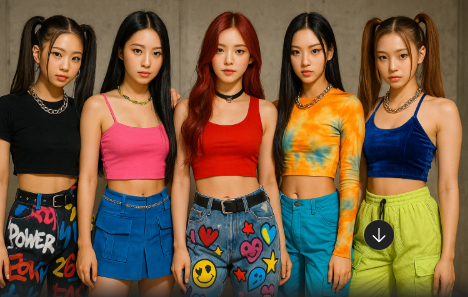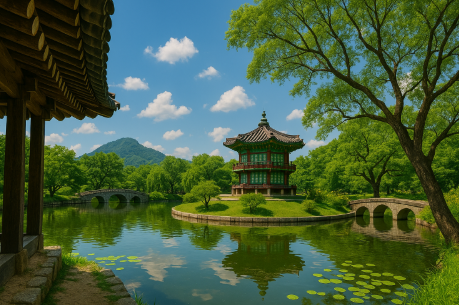Korean literature is a fascinating and diverse field that offers insights into the culture, history, and values of Korea. From ancient writings to modern-day novels, Korean literature provides a unique window into the country’s evolving narrative. In this blog, we will explore various facets of Korean literature.
Historical Roots of Korean Literature
Korean literature has its roots deeply planted in ancient times, with its origins traced back to traditional oral storytelling. Written literature began to flourish during the Three Kingdoms period (57 BC – AD 668), with classical Chinese always playing a significant role in its early development. This period is marked by works such as the “Samguk Sagi” and “Samguk Yusa,” which document historical accounts and myths, providing rich historical context to Korea’s literary evolution.
Classical Korean Literature
With the invention of Hangul in the 15th century by King Sejong, Korean literature saw a democratization, making literature accessible to the broader public. This era marked the emergence of notable poets like Jeong Cheol and great works such as “The Tale of Hong Gil-dong” —a peak in fiction that explores themes of social justice and individualism through the adventures of a Robin Hood-esque figure.
Modern Korean Literature
The 20th century brought with it a wave of modern Korean literature that mirrored the tumultuous historical changes in Korea. This century witnessed the emergence of various literary movements and genres, including realism and modernism. Pioneering authors like Kim Dong-in and Yi Kwang-su used literature as a vehicle to express nationalist fervor and critiques of societal issues. Contemporary authors like Han Kang and Kyung-sook Shin continue to add to this rich tapestry with works that have gained international acclaim.
Korean Literature in the Global Context
Korean literature’s global presence has been growing steadily over the past few decades, especially after Han Kang won the Man Booker International Prize for “The Vegetarian” in 2016. Authors such as Shin Kyung-sook, whose book “Please Look After Mom” touched readers around the world, demonstrate the universal themes and humanistic appeals of Korean stories. These works connect globally, showing how literature transcends cultural boundaries.
Genres and Innovations in Korean Literature
Today, Korean literature spans an array of genres from poetry and prose to science fiction and drama. The emergence of web novels and digital reading platforms signifies ongoing innovation, allowing literature to reach younger audiences. Scholars are also taking interest in the thematic exploration within Korean texts, often addressing issues like identity, family, and societal changes.
The table below summarizes the key periods and influential pieces of Korean literature:
| Period | Key Works | Notable Authors |
|---|---|---|
| Three Kingdoms | Samguk Sagi, Samguk Yusa | N/A |
| Classical Era | The Tale of Hong Gil-dong | Heo Gyun |
| Modern Era | The Vegetarian, Please Look After Mom | Han Kang, Shin Kyung-sook |
FAQ
What is the significance of Hangul in Korean literature?
Hangul, the Korean alphabet, was created in the 15th century and played a crucial role in making literature accessible to the general populace, enriching the cultural and literary landscape of Korea.
Who are some famous contemporary Korean authors?
Some renowned contemporary Korean authors include Han Kang, Kyung-sook Shin, and Kim Young-ha. Their works have gained international recognition, bringing Korean narratives to a global audience.
What themes are commonly explored in Korean literature?
Korean literature often explores themes such as identity, family dynamics, societal issues, and personal struggles, reflecting both historical and current societal contexts.
Summary
- ✅ Korean literature offers a rich historical perspective from oral traditions to modern novels.
- ✅ The creation of Hangul allowed for broader public access and enriched literary expression.
- ✅ Contemporary Korean literature is gaining global recognition through diverse themes and cutting-edge genres.
- ✅ Key historical works include “Samguk Sagi” and “The Tale of Hong Gil-dong.”
- ✅ Korean literature continues to innovate with the rise of digital platforms and global publications.
#KoreanLiterature #Hangul #HistoricalKorea #ModernKoreanAuthors #HanKang #PleaseLookAfterMom #TheTaleOfHongGilDong #ThreeKingdomsKorea #LiteraryHistory #KoreanPoetry #ContemporaryKoreanFiction #KyungSookShin #SamgukSagi #DigitalLiterature #GlobalLiterature #CulturalKorea #IdentityInLiterature #FamilyThemes #KoreanBooks #WebNovels #LiteraryInnovation #LiteraryMovements #FictionAndProse #KoreanHistory #LiteraryAwards #CrossCulturalLiterature #21stCenturyKorea #KoreanAuthors #InnovationInLiterature #HangulCreation #UniversalThemesInBooks

